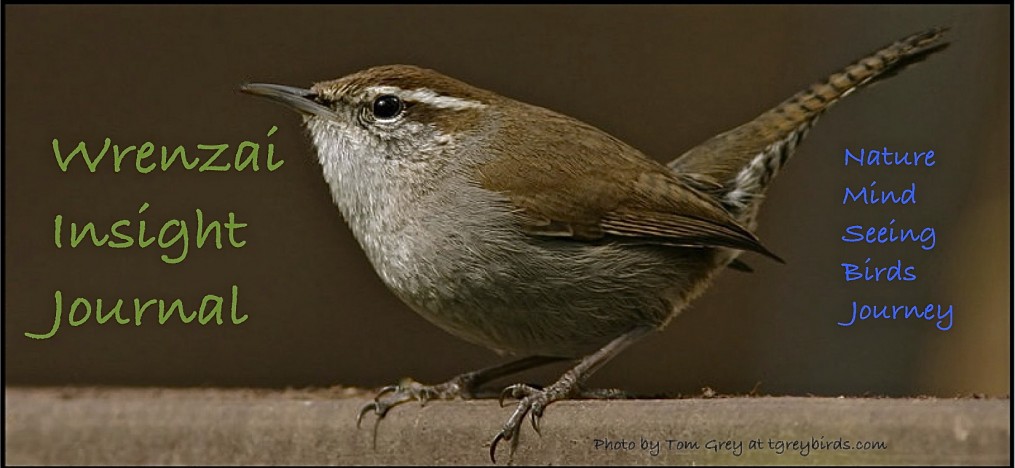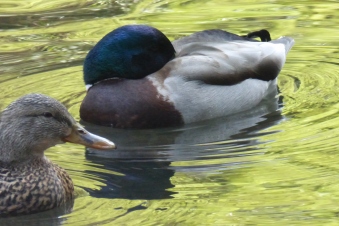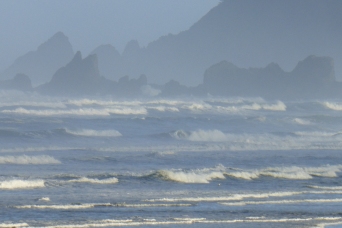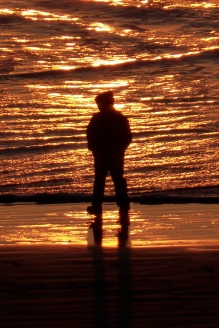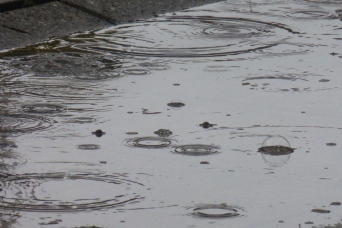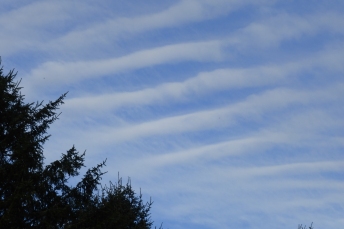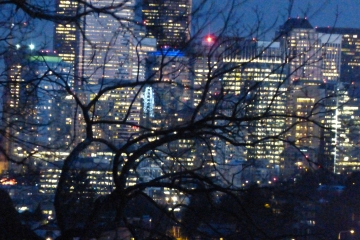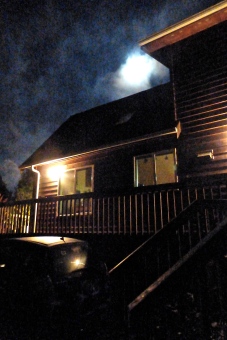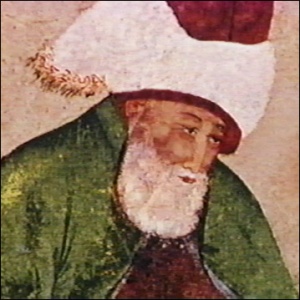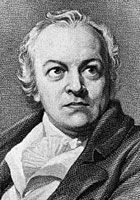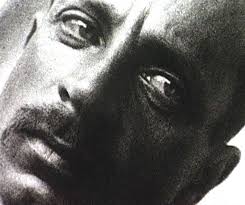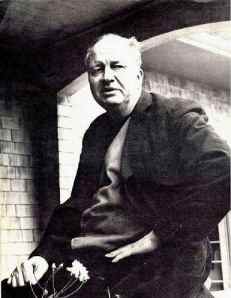Always I long for something other than here and now, yet such a longing according to traditional and contemporary spiritual trends is a kind of illness. Be here now and all that spume. Lovely but impossible ideal, I’m afraid. Even prepping a class, I cannot help but picture those student faces, swallowing my program, my ideas even, lifting their eyes to lines of prose or pen to paper…
Now is as empty as a pocket I futilely strain to fill with the coins of my eyes and ears, with my whole being…
There is meditation formalized and meditation that serves the purpose at hand—one way or the other an altered, relaxed state of mind that allows the other, the here and now, to intercede on the past-and-future-occupied mind….
I have watched—I have become—waves crashing, one upon the other, spilling up the beach toward my feet, felt the disorienting grate of upward rush and backward wash, been nearly thrown to the sand at the height of this conflictive coming and going merely abandoning my eyes to this other world, this other possibility (for all possibilities exist in reality, if only for a moment in the mind)….
One might say total abandonment to reality may bring the caesura of reality, certainly caesura of consciousness of reality. Total abandonment to sight and sound bring the unknown, the frightening, as for the cat for the first time thrown into an alien world, for the first time set down on the beach beside the thundering waves, all bent-eared and wide-eyed, tensed to avoid a sensed end of his life.
And I have lost myself in the flight of a seagull in my reverie, lost myself in casting off my own contrived reality that I superimpose on the true underlying reality that exists independent of me, independent of all “conscious” creatures. Lost myself in the seagull’s wings, in wind-veer and gust-loft, become those yellow eyes scanning the broken carapace of a crab, the starfish rotting on the beach below. Been to the center, the beginning, of the universe, a cerebral cosmologist, to the Big Bang on the verge of Banging Big, the Big Bang Banged and blasting outward, been to cell and molecule, to atom and electron, to quark and back. Infinity is no stranger to the childlike mind.
And I have held your heart beating in my hand. But unintentionally, for how can I sort through what occurs intentionally, and what unintentionally, in or to my mind? Who can say I thought this or that thought on purpose and know for sure it didn’t merely happen of its own accord, that my every thought is not merely the cresting of the wave of all thoughts that have risen and rushed forward in and with and all around me and the whole of thinking, of mutating humanity. Or finally to finally conclude and forever as long as I can hold the conclusion that I know I will a thought independent and exclusive of all other thoughts—a unique thought! That reality is not merely my greatest, most complex meditation on nothingness, that all I sense and feel and think, I only think I sense and feel and think! I only think I think!
Still, how can I question all I am and do and know and have? Ah, the QUESTION is all! Knowing, as big, as small, as sure, as flimsy, as up for amendment or as momentarily stable as it is, is vanity. To know, to think one knows, is to lack humility while to question is to lie steadfast beneath the exploding stars and widen the eyes. And to name is a feeble attempt to get on top of, to get under our feet, that which crushes us beautifully. No matter how critical I become of the world, of others, of myself, I must make way for the blossom to bloom, the colors to mix and re-emerge, to reinvent themselves, wherever they are, within or without.
A marquee to the south ripples light in a window to the north. What need have I of a first order of reality? The speakers have lips, the lips another’s song, the song itself a tiny echo of yet another reality. What a surprising luxury, flesh! Still, the sun becomes a thought, the moon a peaceful dream.
